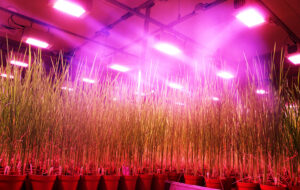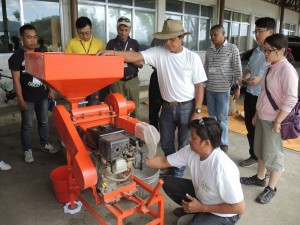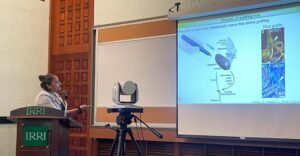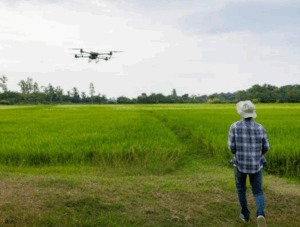A report by the Tanzanian National Bureau of Statistics revealed five issuse limiting the country’s agriculture productivity.
These include limited access to extension services, slow implementation of irrigation systems, low use of fertilizers, and improved seeds, and underdeveloped mechanization.
Tanzania’s agriculture minister the acknowledged the major factors hurdles that limit farmers’ earnings and their contribution to the national economy.
Read the full stroy at All Africa
More on improving agricultural productivity in Africa:
New improved rice varieties for Burundi today, food security for Africa tomorrow
There is a growing need to boost domestic rice production in Africa as the demand for rice in the continent increases. Many African countries rely on imported rice to meet their growing consumption needs, according to the Food and Agriculture of the United Nations. The agency describes the situation as posing “serious food security challenges since rice is now recognized as a priority and strategic food security crop for the region.” This makes efforts to further increase production through better performing varieties that are climate resilient, pest tolerant, and disease resistant more urgent.
An app to help African rice farmers beat weeds
Weeds are serious constraints to rice production in sub-Saharan Africa across all rice environments and are the biggest drain on farm resources. Annual weed-inflicted yield losses in rice in Africa are conservatively estimated at 842,000 tons (paddy) under irrigated conditions, 756,000 tons under rainfed lowland conditions, and 648,000 tons under rainfed upland conditions, amounting to at least USD 1.5 billion per year.
Surveys by the Africa Rice Center indicate that farmers perceive weed infestation as the largest single cause of yield loss in rice in sub-Saharan Africa. As most of them cannot afford herbicides and few have access to mechanical weeders, farmers are left with no other option to protect their crop against weeds but manual weeding. Manual weeding consumes more labor than any other single farm activity and most farmers rely heavily on family labor for this task.
Creating value together in Africa’s rice sector
As the conventional technology transfer approach does not address the complex issues of agricultural development, the rice component adopted the multi-stakeholder innovation platform approach, in which value chain actors are part of the information-sharing and decision-making process and benefit financially.
“Technologies can be scaled out comparatively easily if we create the right environment by bringing together technological, biophysical, and institutional factors; soft skills; technical expertise; products; and services,” stated Sidi Sanyang, program leader for rice sector development at the Africa Rice Center and coordinator of the SARD-SC rice component.







